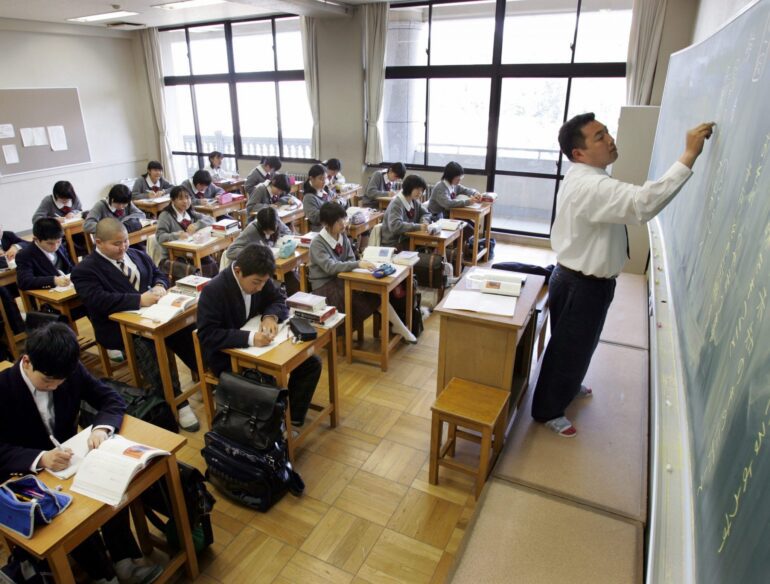TL;DR:
- Japanese education ministry emphasizes AI comprehension in new guidelines.
- Students are urged to understand AI’s characteristics, advantages, and risks.
- Guidelines promote AI integration in English learning and group activities.
- Teachers are encouraged to enhance AI literacy and streamline administrative tasks.
- Caution is advised against personal information leakage and copyright infringement.
- Collaboration planned with NHK to produce educational videos on generative AI.
- Guidelines were applicable to both public schools and other educational institutions.
- Parental concerns about children’s use of AI chatbots were highlighted in the survey.
- The importance of firsthand AI experience for teachers and parents is emphasized.
- Guidelines are subject to revision based on feedback and evolving AI rules.
Main AI News:
In a bid to equip students with the necessary skills for the future, the Japanese education ministry has released new guidelines emphasizing the importance of understanding artificial intelligence (AI). The guidelines, unveiled on Tuesday, outline how generative AI can be integrated into schools while highlighting the precautions needed to address associated risks.
According to the guidelines, students should grasp the characteristics of AI, including its advantages and disadvantages. Among the risks mentioned are personal information leakages and copyright infringement, cautioning students against using AI without comprehending these potential pitfalls. Moreover, the guidelines explicitly state that passing off reports, essays, or any other works produced by AI as one’s own is inappropriate.
The guidelines go a step further by promoting the use of AI in English learning and encouraging its integration into group activities. This approach allows students to explore and address diverse perspectives, fostering deeper discussions. Education minister Keiko Nagaoka expressed her commitment to addressing concerns, enhancing teachers’ understanding and skills, and cultivating a safe and effective environment for AI utilization in education.
These guidelines will be disseminated to boards of education and other relevant organizations, providing a framework for AI integration in educational institutions across Japan. Hisanobu Muto, a school digitization project team leader at the ministry, highlighted the importance of conducting experimental activities based on the guidelines while safeguarding personal data protection, security, and copyright. This will enable a comprehensive evaluation of outcomes and contribute to future discussions.
In addition to student AI literacy, the ministry stresses the importance of teachers’ familiarity with AI technology. The guidelines encourage teachers to use AI-generated fake information as teaching materials to facilitate fact-checking skills among students. They also endorse the adoption of AI tools to streamline administrative tasks and enhance teaching practices, reducing teachers’ workloads.
The guidelines suggest that teachers may need to rethink traditional exam and homework methods that can be easily automated using AI. Muto emphasized the need to improve teachers’ AI literacy through training programs and promote the appropriate use of information in public service, facilitating a paradigm shift in their educational approaches.
To address concerns about personal information leakage, the guidelines discourage the input of such information into AI systems. The ministry plans to urge AI companies to enhance their products for educational use in Japan, including strengthening the filtering of harmful content, implementing personal information protection features, and developing AI tools specifically designed for educational purposes.
Additionally, the ministry intends to collaborate with NHK, Japan’s national public broadcasting organization, to produce educational videos on generative AI learning. The guidelines aim to be implemented not only in public schools but also in various educational institutions, ensuring a widespread impact.
The ministry acknowledges that these guidelines are subject to revision based on feedback and the development of other rules related to AI technology. A survey conducted by CyberOwl, a Tokyo-based organization managing online media related to education, revealed that around 70% of surveyed parents believe regulations for children’s use of AI chatbots like ChatGPT are necessary. Concerns raised by parents included anxiety about critical thinking ability and the potential belief in false information.
Interestingly, the survey results varied based on whether parents themselves had used ChatGPT. Parents who had prior experience with the AI chatbot expressed relatively less worry compared to those who hadn’t. Tatsuya Horita, a professor of information and technology at Tohoku University, highlighted the importance of teachers and parents gaining firsthand experience with generative AI. He emphasized the need for education that promotes understanding of AI mechanisms and encourages its appropriate usage, rather than fostering vague concerns stemming from unfamiliarity.
Conclusion:
Japan’s new school guidelines prioritize AI comprehension to equip students with the necessary skills for the future. By emphasizing the advantages, risks, and responsible use of AI, the guidelines aim to create a safe and effective environment for its integration into education. This development presents opportunities for AI companies to enhance their products for educational use in Japan, potentially driving innovation in the market. Additionally, the emphasis on AI literacy among teachers and the collaboration with NHK signifies a concerted effort to ensure the successful implementation of AI in educational settings. As the guidelines are adopted by various educational institutions, the market for educational AI tools and solutions may witness significant growth.

